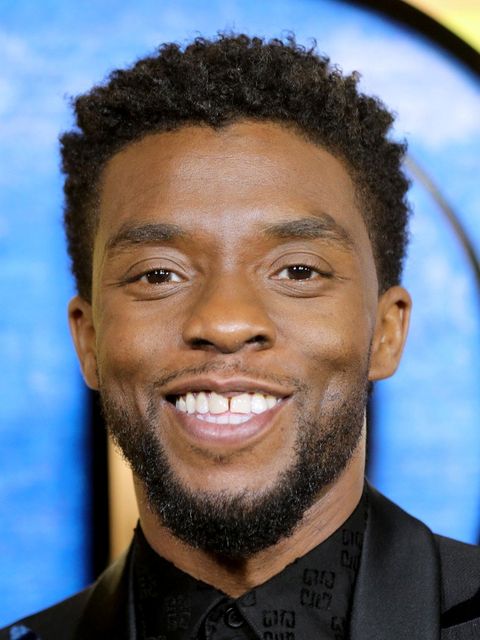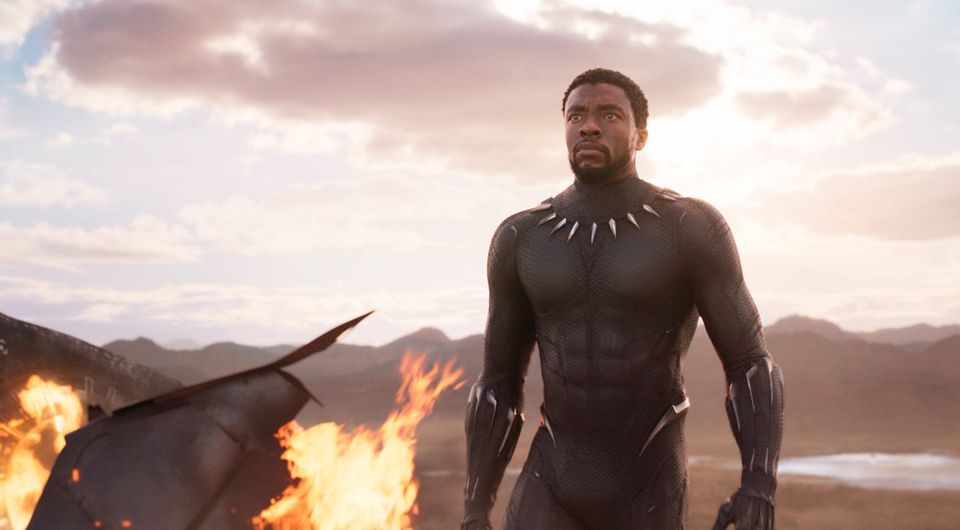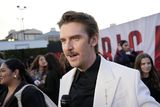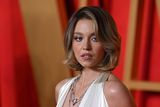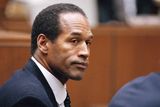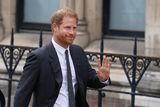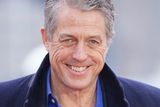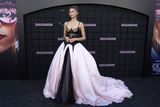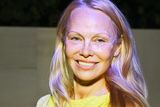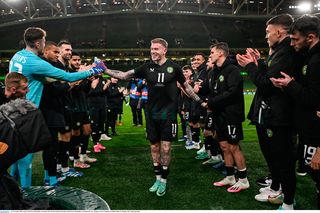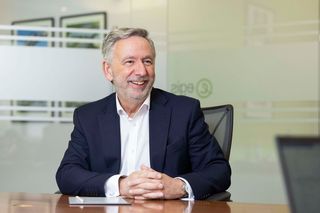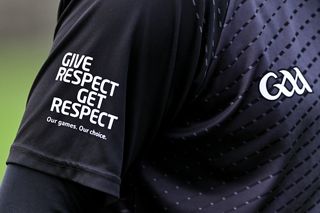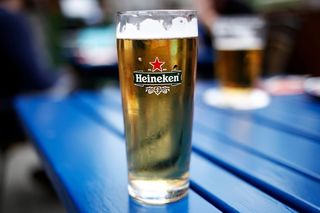‘I just didn’t want this one to be the one that failed’ - Chadwick Boseman talks Black Panther success and new film 21 Bridges
Chadwick Boseman talks about the cultural significance of 'Black Panther', playing James Brown, and his new cop thriller '21 Bridges'.
In 2013, Chadwick Boseman was about to give up acting altogether. He was interested in directing, had written plays since his schooldays, and was getting nowhere as a film actor. Then, while he was busy directing an off-Broadway play, he was asked to audition for a film called 42.
It was a biopic of the great African-American baseball star Jackie Robinson, and though more than 20 other actors had been seriously considered for the role, director Brian Helgeland liked the cut of Boseman's jib, and chose him. Up and running, he exploded onto the big screen a year later in Get on Up, giving an electrifying turn as the magnificently unpredictable godfather of soul, James Brown. Then came Black Panther : now Chadwick is a star.
So much so, in fact, that Chad can pick and choose his projects, and liked the honed and retro feel of his latest film, 21 Bridges. An entertaining all-action thriller set during a single hectic night in New York City, it stars Boseman as Andre Davis, an NYPD detective with a rather Old Testament attitude to justice, and a reputation for reacting decisively in the presence of guns. He's just been hauled before a disciplinary board for what he describes as "a good shoot" when he's called to an emergency.
Five cops have been killed in bizarre circumstances in a Brooklyn club, and when Andre arrives at the scene, the dead officer's captain asks him to hunt down the killers with extreme prejudice. They've fled to Manhattan so to stop them leaving, Davis and his superiors order all the road bridges on and off the island closed. Then the search begins, but meanwhile Andre is beginning to suspect that there's more to this incident that at first appeared. "It was something new for me," Boseman tells me when we meet in a London hotel: he's stylishly dressed, lighter and younger-looking than he seems on screen.
(Chadwick Boseman as Black Panther/T’Challa (Marvel Studios/Matt Kennedy)
When I mention that 21 Bridges reminded me of those honed 1980s and 90s cop thrillers Hollywood doesn't seem to make anymore, and that his character could have been played by a young Bruce Willis, he seems pleased.
"That's exactly what first attracted me to it," he says. "It's the type of film that I grew up watching, that I always enjoyed watching my favourite actors do, and I was always thinking I'd like to do one, one day. I think it has a little bit of everything: there's lots of action, of course, and a scene where you can go toe-to-toe with a great actor like JK Simmons, and it has all that procedural detail about the way cops work. We filmed a lot of it in New York and, as a person who lived there, it just all felt real to me."
Chadwick Boseman
Another refreshing thing about 21 Bridges is the fact that Boseman's character's race is never mentioned, and consequently a non-issue. "Yeah, that happens a lot less often than you'd think. In the screenplay it wasn't written that I'm African-American so, yeah, he could have been played by anyone, from wherever. But you can bring your own culture to it, of course."
A good deal of the film's twists emerge from his rather guarded relationship with his colleague on the case, a female detective played by Sienna Miller. Neither really trusts the other, for reasons that only slowly become clear.
Chadwick Boseman at the 'Black Panther' film premiere, London, UK
"The thing that's really driving the film is the fact that everything is on a clock; we only have a few hours to do what we need to do, so we're restricted with time and space, and I don't have time to make the most clear assessment of who she is. You see her trying to make her assessment of me as well, and it puts us in a place where, from the audience's point of view, we miss all the right things plot-wise, if you see what I mean."
Though the Marvel films have given Chadwick plenty of screen combat experience, the fights on 21 Bridges were different: less choreographed, more spontaneous, and involving lots of guns. "I had never shot guns before," he tells me. "I'm not a person who likes firearms or would own one or anything so it was different for me; it was a complete change. So I found a specialist LAPD officer who basically took me to the gun range, three or four times a week, firing live rounds. By the end, you're firing 500 rounds a day, moving from target to target, ducking behind cover. When I got to New York, I connected with two NYPD detectives. They then took me to firing ranges with SWAT (Special Weapons and Tactics) and showed my how they clear buildings.
"The difference between doing choreography in an Avengers movie and doing this is that on the Marvel movies, everything is meticulously planned, so you know exactly what's going to happen - he's going to kick now, and I'm ducking and rolling over here. With this, you were almost reacting in real time: it's more improvisational, it's all happening on the day."
Good as he was in 42 and Get on Up, the direction of Chadwick Boseman's career entirely changed on foot of his involvement in the Marvel films, and most particularly Black Panther, an African-set adventure that grossed almost $1.5bn. Did he have any notion when he was shooting it of the kind of cultural significance the film would have?
Success: Chadwick Boseman in ‘Black Panther’, which made $700m in North America
"I can't say that I knew. But I would say that I felt the pressure of it not doing well, because I understood the potential of what it could mean to people from the African diaspora, and also its broader impact, so really I just didn't want this one to be the one that failed. If all these other Marvel movies are doing so great, I didn't want Black Panther to be the one that didn't make its money back. To me that was a pressure any actor would feel, but because this had just not been done before, I had other people's pressure on me as well."
That connection to Africa is important to Chadwick, and DNA testing has allowed him to find out exactly from where his people hailed. "I am Limba from Sierra Leone, I am also Yoruba from Nigeria, and I'm also Guinea-Bissau."
Chadwick Boseman in Black Panther
Boseman is all of those things, but also a South Carolinian, born and raised in the town of Anderson, where his father worked in a factory and his mother was a nurse. He was attracted to drama and writing in high school, and wrote his first play in response to the shooting of a friend: his antipathy to guns doesn't come from nowhere.
After moving to New York in the early 2000s, he worked as a drama instructor and began picking up small parts on TV shows like Law & Order and CSI: NY. In 2008, he migrated to Los Angeles to concentrate on film, where, as we've heard, progress was slow. The success of Black Panther last year has changed everything, but Boseman has his fingers in many pies. He co-produced 21 Bridges and has never stopped writing. "While we're here, I have script meetings on the go," he says, "so it's all kind of happening at the same time."
He has not visited West Africa yet, but intends to. "I have still not been. The trip is being planned - it's gonna be a huge thing."
He may find it hard to take time off, however, because at the moment Boseman is a busy man. He's just finished working with Spike Lee on a Vietnam-era war film called Da 5 Bloods and with Denzel Washington on an adaptation of August Wilson's classic play Ma Rainey's Black Bottom. "It's such a powerhouse play and cast," he says, "and I'm very excited for people to see it. Denzel is going to do all 10 plays, so it's a great honour to be a part of it."
Working on that film was tough, he says, but playing James Brown was probably the hardest thing he's done to date. "The crazy thing about Get on Up was that it came together so quickly, and the script was changing every day, so there was a lot of improvisation. And you know, working with the family, learning the dance language, playing him from his teens to his old age... that movie was murder, but I really did enjoy it.
"When we finished shooting, I didn't want to stop. I remember the last live performance scene we did was at the Boston Garden, and I was like, 'Now I understand, I've finally got it - let's keep going!'"
'21 Bridges' is in cinemas from Friday
Join the Irish Independent WhatsApp channel
Stay up to date with all the latest news
